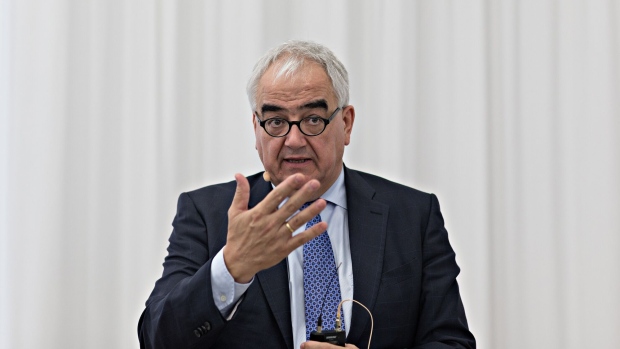Nov 14, 2023
Former Top J&J Scientist Bets on China For Biotech Turnaround
, Bloomberg News

(Bloomberg) -- At Johnson & Johnson, Paul Stoffels helped turn obscure drug candidates into blockbusters. Now, the once-retired doctor is seeking to revive that talent to turn around the ailing pharma company he co-founded last century.
Stoffels has been mining China’s burgeoning biotech field for promising cancer therapies since rejoining Galapagos NV as chief executive officer in April 2022. The company, based in his native Belgium, is evaluating at least three opportunities in oncology in China, and has met with several potential partners there in the past year, he said.
The infectious disease physician, who retired from J&J in December 2021, is counting on CAR-T, a new type of immunotherapy revolutionizing blood-cancer treatment, to yield new product lines for Galapagos. China is running more clinical trials of CAR-T therapies than any other country — fertile ground for further developing the breakthrough therapies and identifying early-stage products that could help meet Galapagos’s goal of introducing two new drugs in the next five years.
“I have a lot of insight into the great science happening in China,” Stoffels said in an interview over Zoom. “It is incredible how fast the country has evolved to do great new innovation.”
Galapagos, worth €12 billion at the end of 2019, has lost 80% of its value over the past four years amid drug-trial disappointments and delays gaining US approval for the rheumatoid arthritis drug Jyseleca.
‘Transformational’ Data
In his previous roles at J&J, including chief scientist, Stoffels oversaw a deal with a unit of Chinese drugmaker GenScript Biotech Corp. in 2017 to co-develop a CAR-T therapy, whose early trial data he called “transformational.” The treatment received US FDA approval last year, making it the second China-developed cancer drug for sale in the world’s most valuable pharmaceutical market.
Read more: China’s Experimental Cancer Cure Offers Hope and Hidden Dangers
Stoffels’ interest in China reflects international drugmakers’ increasing appetite for the Asian nation’s medical innovations.
AstraZeneca Plc announced last week a deal worth as much as $2 billion with closely held Chinese drugmaker Eccogene to enter the obesity drug race. Merck & Co. clinched several deals with Sichuan Kelun Pharmaceutical Co. last year on experimental oncology products, and Takeda Pharmaceutical Co. recently garnered FDA approval for another China-developed cancer drugs to sell in the US.
Important discoveries by biotech companies around Shanghai have turned the area of eastern China into an emerging biopharmaceutical research hub, rivaling Boston, San Diego, London and Basel, Novartis AG CEO Vas Narasimhan said at briefing in Tokyo this month.
That’s no guarantee of success, though. The quality of clinical trials conducted by some Chinese drugmakers has come under question and, in some cases, the rights to develop drug candidates have been returned by foreign purchasers amid lackluster performance in patient studies or changes in research strategies.
Read more: China’s $220 Billion Biotech Ambition Struggles to Take Off
Stoffels said he’s not fazed. “I’m bullish that there will be a lot of successes coming from China,” he said. “Don’t underestimate what the Chinese biologists and scientists are able to do.”
--With assistance from Kanoko Matsuyama.
©2023 Bloomberg L.P.


